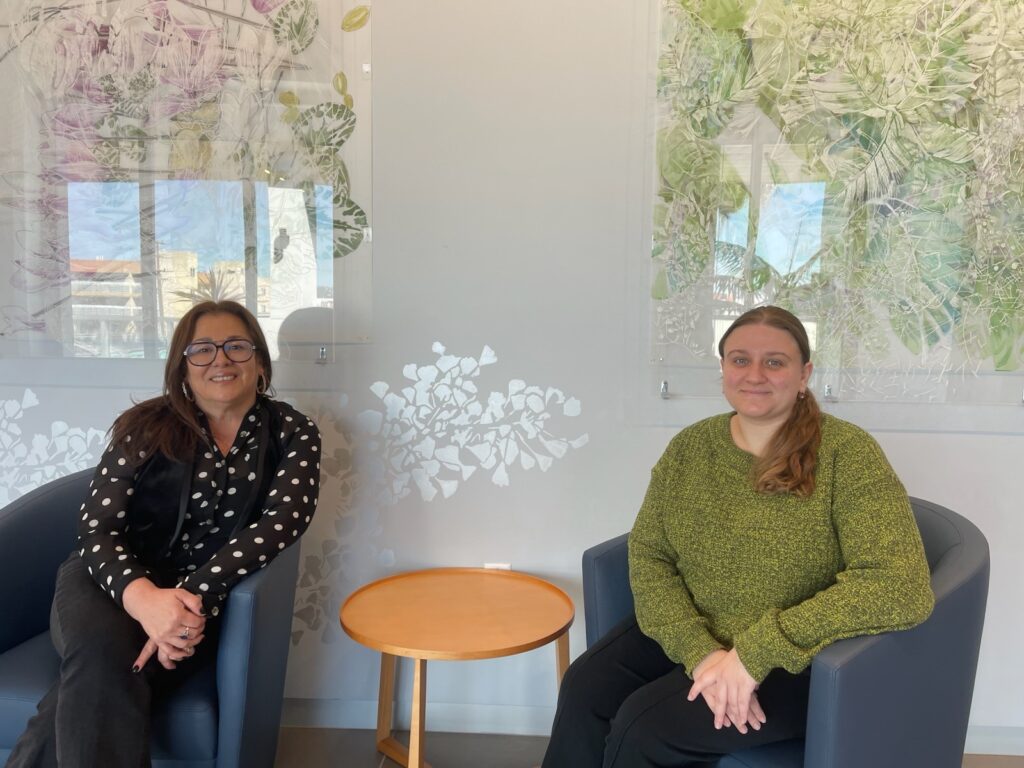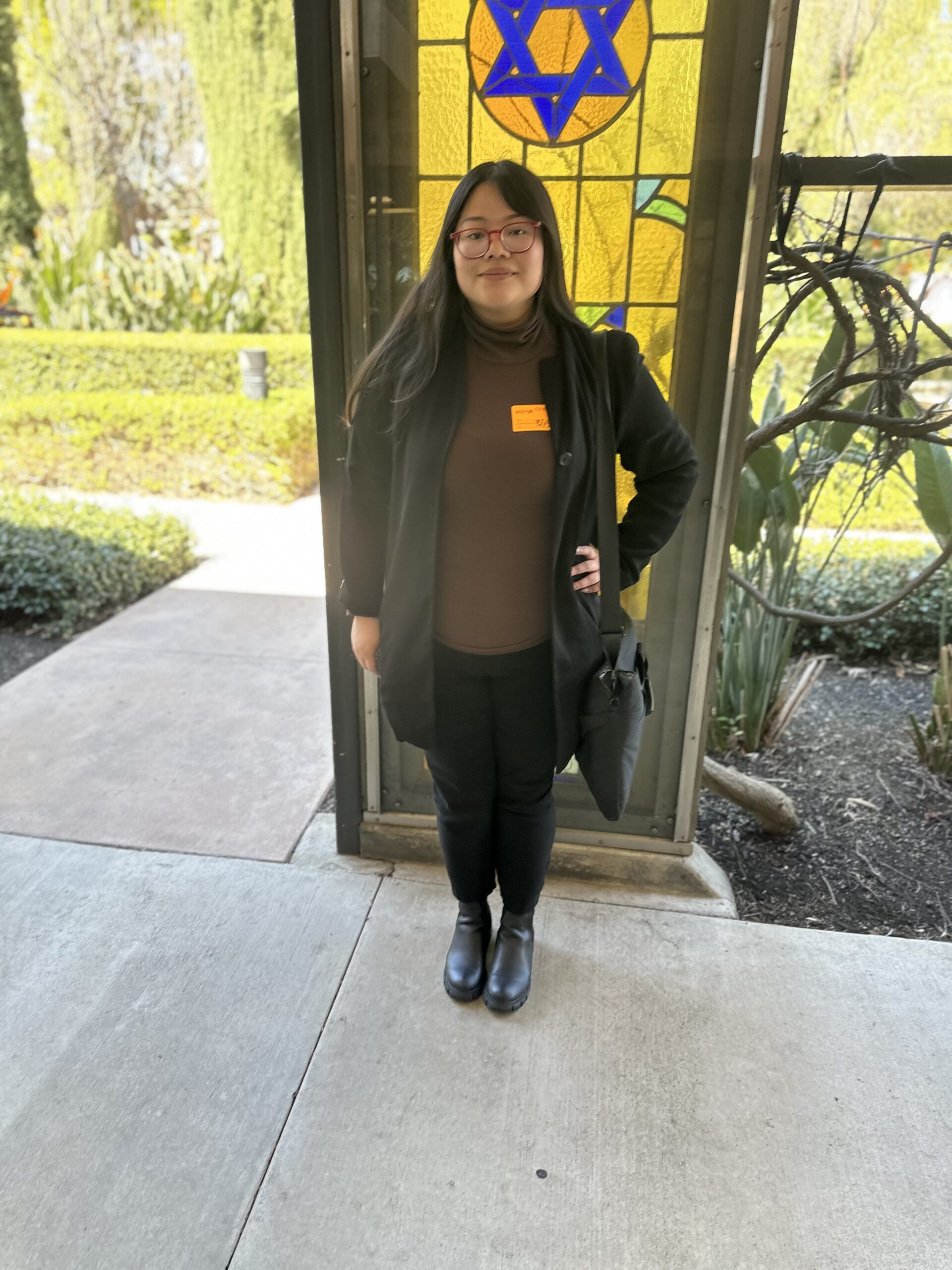JFSLA Social Workers Transform Communities

March is National Social Work Month, a time to recognize the vital contributions of social workers in transforming lives and strengthening communities. Social work has been central to Jewish Family Service LA for over a century. In fact, nearly 100 years ago, JFSLA hired its first social worker, Freda Mohr, when the agency was known as the Jewish Social Service Bureau. Mohr became Executive Director in the early 1930s and served into the 1960s, leaving a lasting legacy of commitment to social work. In 1946, the agency was renamed Jewish Family Service of LA, and its dedication to social work continues to this day.
As part of that legacy, JFSLA has long served as a training ground for future social workers. This year, the agency is hosting 18 student interns—one BASW intern, 15 MSW students, and two MFT students—with three additional MSW students joining in the coming months. With the expansion of online and remote programs, JFSLA now welcomes students from universities nationwide, including UCLA, USC, Cal State LA, CSUN, Rutgers, Boston University, Wurzweiler, Columbia, and Pepperdine.
JFSLA’s internship program is made possible by 14 dedicated staff members who provide supervision and mentorship, under the leadership of Robyn Altmann, Director of Hope Clinical Services. Their guidance ensures that the next generation of social workers is prepared to continue this essential work.
Whether helping individuals at risk of homelessness remain housed, supporting older adults with resources to age in place, guiding survivors of domestic violence, or connecting individuals experiencing food insecurity to JFSLA’s food programs, JFSLA social workers provide essential assistance to people at all stages of life.
One such professional is Helen Balagula, a JFSLA social worker who supports older adults, including those in the Survivors of the Holocaust program. Helen helps clients access crucial resources such as care management, financial assistance, Medicare enrollment, transportation, and JFSLA’s food programs, ensuring they receive the support they need to stay safe and well-cared for.
One notable success story involved Helen working with multiple agencies to support a cognitively impaired couple without family support. As their needs escalated, Helen conducted regular home visits to ensure their safety and collaborated with partner agencies to facilitate their transition to assisted living.
“This case was incredible because of the teamwork,” Helen shared. “I collaborated with various agencies, including the City of Beverly Hills Fire Department nurse practitioners, Adult Protective Services social workers, UCLA social workers, and the City of Beverly Hills Human Services. It truly felt like an all-star team working together to ensure the couple’s safety and well-being.”
JFSLA social workers also support individuals at risk of homelessness. Guadalupe Yamamoto played a pivotal role in the success of JFSLA’s Home Safe Program, which unfortunately is ending due to state budget cuts. The program helped individuals involved in Adult Protective Services maintain stable housing and avoid homelessness.
One of Guadalupe’s most memorable cases involved a client experiencing elder abuse and facing eviction. Guadalupe helped the client relocate to temporary housing and facilitated a reunion with their daughter in Madera County. Through the Home Safe Program, she coordinated the client’s move, arranged for essentials and furniture, and connected them to ongoing support. This critical intervention allowed the client to escape an abusive environment and begin a new chapter in a safe, supportive home.

“Social workers don’t just provide resources,” Guadalupe said. “We help individuals regain stability, dignity, and hope, empowering them to navigate complex systems and build a future where they feel secure and valued.”
At JFSLA’s Felicia Mahood Multipurpose Center, social worker Marylu Molina has spent nearly 15 years connecting Angelenos to life-changing resources. Recently, she and UCLA social work intern Ky Binder assisted a 70-year-old blind man who had lost his caregiver.
After receiving a referral from Adult Protective Services, Marylu and Ky visited the man’s home, where they discovered he had only a pound of cheese and some bread to eat, provided by a neighbor. They immediately brought groceries and water, enrolled him in JFSLA’s Senior Nutrition meal delivery program, and helped him secure a new caregiver.
Marylu, like many social workers, frequently encounters the challenges of food insecurity and financial instability among older adults. Many seniors live on fixed incomes, and rising costs often make it impossible to meet their basic needs. By connecting clients to JFSLA’s food programs and helping them apply for state benefits, social workers ensure older adults can maintain their independence and quality of life.
“It takes a village to care for one another, and this is especially true for older adults,” said Marylu. “We all need to be more aware of those around us—whether in our neighborhoods, apartment buildings, or communities. If you see an older adult struggling with a bag, offer to carry it. If you’re headed to the supermarket, ask if they need anything. Small acts of kindness can make a big difference in their lives. We all have a role to play in supporting our older neighbors and ensuring they feel seen, cared for, and safe.”
These three social workers, along with countless others at JFSLA, are transforming the Los Angeles community, making it a kinder, more compassionate place. As we celebrate National Social Work Month, let’s honor these professionals who, with empathy and dedication, create lasting positive change in the lives of those who need it most.
